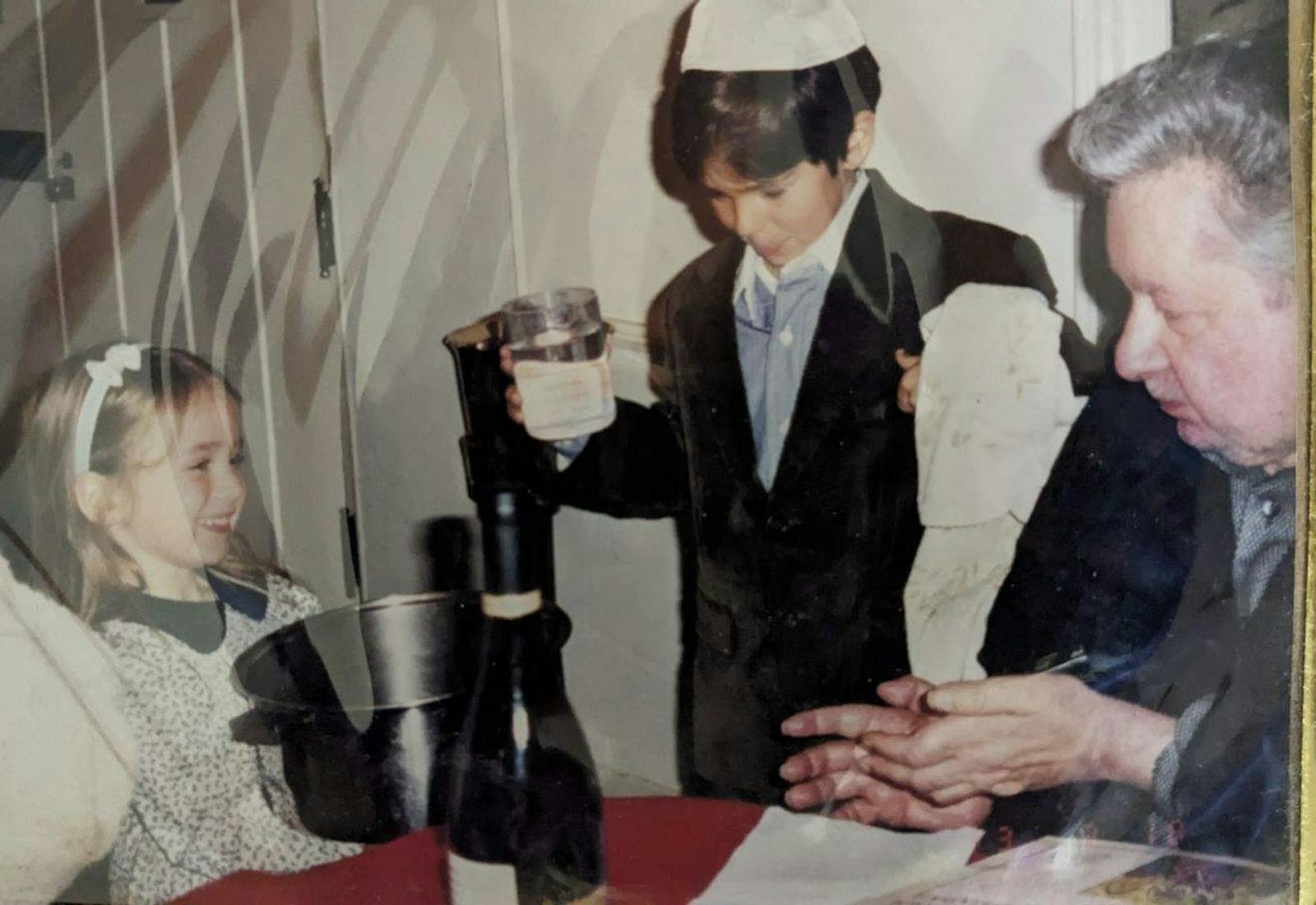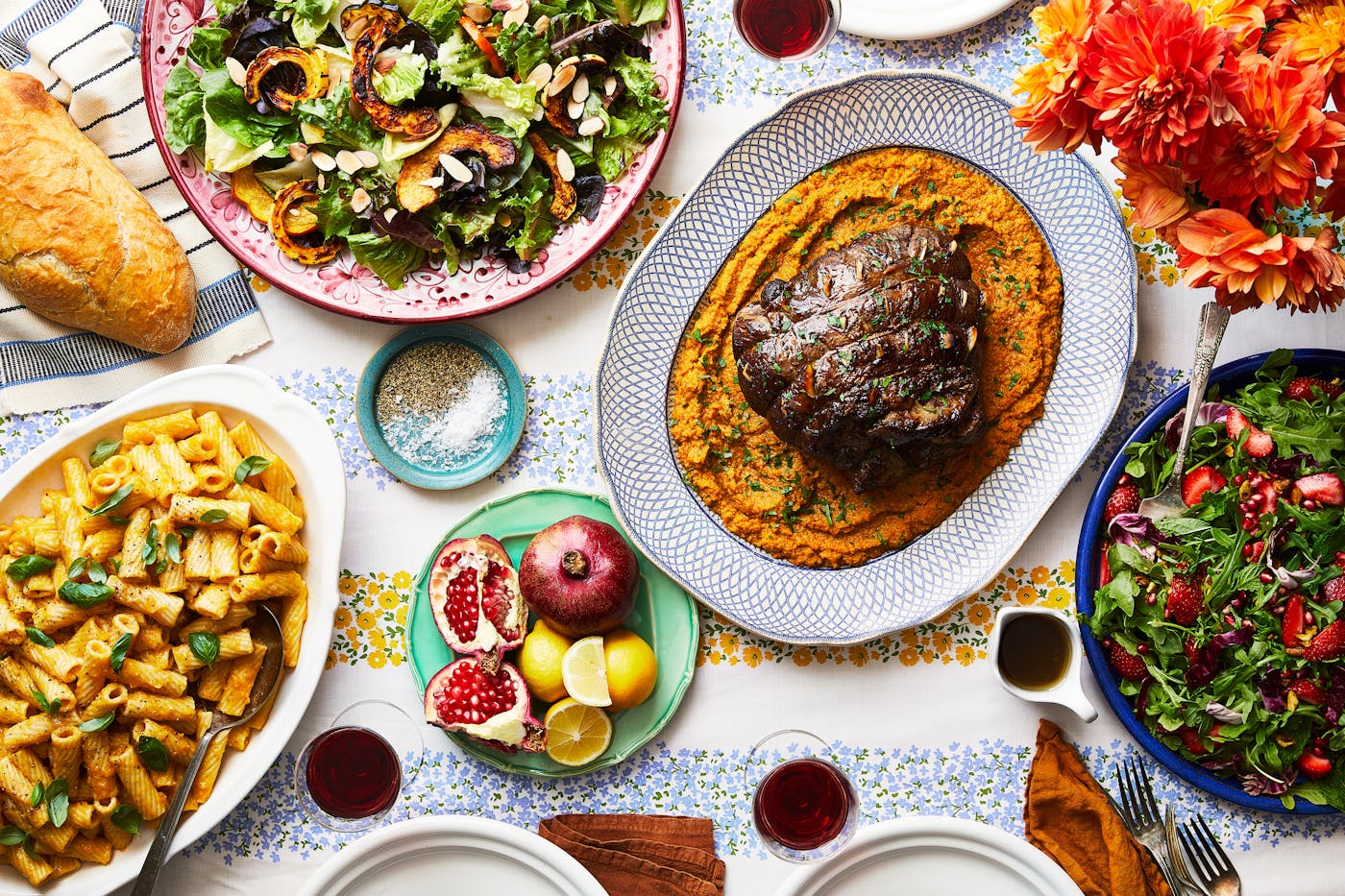Shared by Remi Attia


Shabbats belonged to Remi Attia’s grandparents. They hosted not only the family dinners, but regular Friday night sleepovers for Remi and her brother. “So from a very young age, they had just such a big influence on me.”
On Fridays afternoons, her mother would drop her off at their home nearby in Los Angeles or her grandmother Judie would pick her up and the duo would cook for Shabbat dinner together. Her grandfather Nathan, a wine writer and maker who was partially paralyzed by polio when he was 18, would sit nearby in a wheelchair, crack jokes, and serve as the taste tester.
The table at their home was set for anywhere from a dozen to 20+ guests with colorful linen tablecloths her grandmother brought back from trips to Italy, ceramic bowls, and numerous wine glasses to accommodate the wines from her grandfather’s collection. Dinner might be rigatoni with a sweet and earthy orange-hued butternut squash sauce and a platter of tender roasted lamb over a bed of pureed vegetables. And there were always salads like one with arugula and pomegranate seeds or mixed greens with ricotta salata. “My family typically changes the salad based on the season and one of my favorite things my grandma did was use fresh herbs and lettuce from her garden,” Remi says.
Influenced by their family’s heritage in Egypt, Italy, and California, the menu “wasn’t what you think of Shabbat food,” she adds. Her grandmother’s family traces their roots to Alexandria, on Egypt’s Mediterranean coast where her great-grandfather worked for King Faruk, but around the middle of the 20th century as Egypt’s politics changed dramatically, many Jewish families fled. Remi’s relatives went to Sicily both to escape persecution and to pursue business opportunities in the textile industry, she believes.
As the family migrated, their cooking evolved. In Egypt, her great-grandparents stuffed zucchini with meat when all they could get were tough cuts. But, in LA, her grandmother and mother leaned into Italian and Californian cooking styles and preferred to stuff squash blossoms with cheese and herbs. But other recipes from Egypt endured like a date charoset for Passover and grape leaves stuffed with lamb, dried apricots, and pine nuts.
“Every Friday, we would cook together and she would show me how she made certain recipes,” Remi says. It wasn’t just the ritual of Shabbat dinner at her grandparent’s home that Remi appreciates now, it’s the time she spent in the kitchen with her grandmother. “When I was really little, I was really frightfully shy, and cooking with my grandma really helped. Showing people love and sharing stories through food was how I was able to get more comfortable in big groups,” she adds.
Today, Shabbat in the family looks somewhat different, as the family has spread out and both of her grandparents have passed away. Her mom has taken on the responsibility of hosting as have Remi and her husband who live across the country in New York. But, Judie’s style continues to inspire Remi. Earlier this year, she launched The Nosh Table, a dinnerware and Judaica company influenced by Jewish and Italian tradition that’s a playful ode to her grandmother. Remi notes: “Especially with the Jewish holidays, I just really wanted to make them more fun and colorful and playful — and inspire people to celebrate their heritage, which is exactly what my grandmother taught me to do.”
